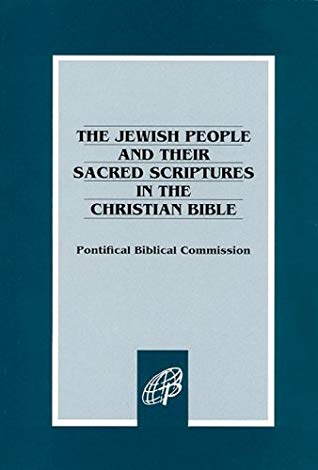The full title, The Jewish People and their Sacred Scriptures in the Christian Bible, doesn’t fit nicely in the subject line. So I improvised. This deceptively little book caught my eye when I visited Rome, at the same time my Jewish boyfriend traversed Israel. Being an intimidating subject to tackle, the book sat on my “to read” shelf since. But I finally picked it up.
 It’s divided into three parts: The Sacred Scriptures of the Jewish People are a Fundamental Part of the Christian Bible; Fundamental Themes in the Jewish Scriptures and their Reception into Faith in Christ; Jews in the New Testament. Part I is mostly introduction, sharing information that I hope is already understood when picking up this book—that the Old Testament is still true and relevant. So the meat of it is Part II, which digs into Scripture itself.
It’s divided into three parts: The Sacred Scriptures of the Jewish People are a Fundamental Part of the Christian Bible; Fundamental Themes in the Jewish Scriptures and their Reception into Faith in Christ; Jews in the New Testament. Part I is mostly introduction, sharing information that I hope is already understood when picking up this book—that the Old Testament is still true and relevant. So the meat of it is Part II, which digs into Scripture itself.
I like the format: it explores a specific theme, discussing its appearance in both the Old and New Testaments. We hear about such things as the goodness and wickedness of humanity; God as Savior; prayer; and the Law. Perhaps needless to say, we mostly only differ on the last one. (It’s a big one, but Jewish-Christian differences aren’t as much as we tend to think.)
The New Testament never says that Israel has been rejected… [The Church] understands her own existence as a participation in the election of Israel and in a vocation that belongs, in the first place, to Israel.
The salvation of the Jews comes up frequently, even across topics. I’ve been meaning to delve more into the subject, and took notes to help further my understanding of how this works (a future blog post, perhaps). But it always piqued my interest—God made a promise that His chosen people be saved, but you also need Jesus Christ to be saved. How does that work? The more I think about it, the more my mind boggles.
Part III explores Judaism within the New Testament itself, pointing out the distinctly Jewish parts of the Gospels and Paul’s letters. Paul talks a lot of Judaism, being a Pharisee himself, so is a great reference for both sides of the argument. But the apostles were also Jews, which is easy to forget in their travels with Jesus. The book takes each New Testament writer and picks out the parts relevant to the Hebrew Scriptures, helping to create each of their Jewish identities. It doesn’t shy away from Revelation, either.
Though I’ve finished this book, I’m not quite done with it. It’s a good reference while reading the Bible, especially the New Testament. It explores the depths of Judaism in all of Scripture, a theme we shouldn’t forget even through Jesus’s ministry.
